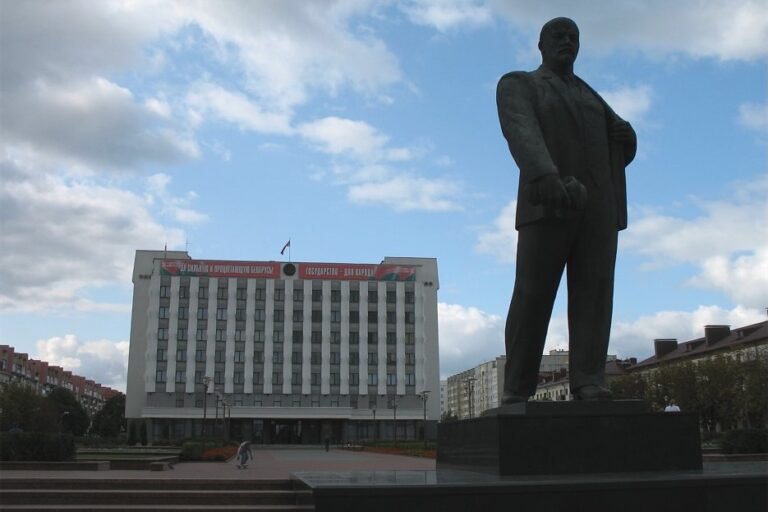(RSF/IFEX) – RSF has protested against the Information Ministry’s suspension of two more independent newspapers. The editors of the twice-weekly satirical newspaper “Navinki” learned that they were being suspended on 3 June 2003. On 5 June, the ministry also suspended the independent weekly “Ekho” for three months. “We are extremely concerned about these new closures,” […]
(RSF/IFEX) – RSF has protested against the Information Ministry’s suspension of two more independent newspapers. The editors of the twice-weekly satirical newspaper “Navinki” learned that they were being suspended on 3 June 2003. On 5 June, the ministry also suspended the independent weekly “Ekho” for three months.
“We are extremely concerned about these new closures,” RSF Secretary-General Robert Ménard said. “The press law permits the temporary closure of a news media outlet after two warnings, but the authorities are using ridiculous bureaucratic pretexts to get rid of the independent press,” he added.
“Navinki” only learned of its suspension when the company that distributes the satirical paper, Belsajuzdruk, announced its refusal to distribute its latest issue on 3 June. The newspaper has yet to receive official notification of its closure. The Information Ministry issued a first warning on 21 May, after “Navinki” published “two photographs of the president of Belarus along with an insulting comment” in the same issue. On 22 May, the ministry issued a second warning about two articles published earlier in the year (in issues 87 and 90), entitled “The Press Law” and “Offence to the people’s morality”, respectively.
“Ekho”, which has managed to publish only one issue since its launch, was prevented from printing its 4 June issue, in which it had planned to include articles from the independent daily “Belorusskaya Delovaya Gazeta”, which was itself forced to cease publication for three months on 28 May (see IFEX alerts of 2 June and 30 May 2003).
The Information Ministry gave “Ekho” two warnings on the pretext that it had changed its legal address, name and the subjects it writes about without re-registering with the authorities. Then, on 4 June, Uladzimir Celesh, head of the Krasanaya Sevzda printing house, told “Ekho” that he was ending their contract with immediate effect, thereby preventing that day’s issue from being published.


